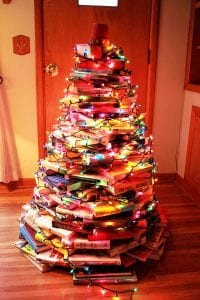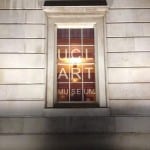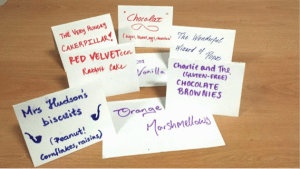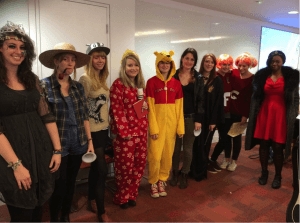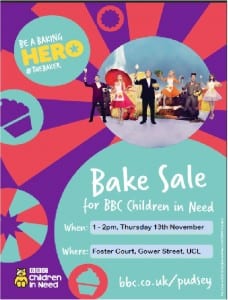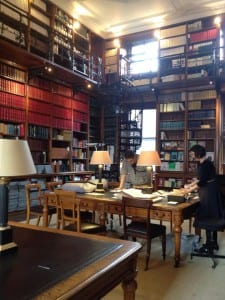On Monday 23rd October, past and present students gathered with other lovely people at the rather majestic Stationers’ Hall to attend the inaugural Stevenson lecture. The evening was a celebration of book historian and UCL professor Iain Stevenson (1950-2017) hosted by Bloomsbury Chapter and UCL Publishing. Simon Eliot gave an inspiring talk entitled: ‘Letters, Leaflets, and Lectures: Before and Beyond the Book 1840-1945’ – we learnt lots (including the correlation between pay and height for Victorian male servants) and were reminded of weird and wonderful things (such as the reason for the holes in our front doors).
At the end of the evening, Daniel Boswell presented the U.C.L Stevenson Award 2017. We obviously wanted to know more about the winner and runners up, Claire, Dominic and Sarah – so here is a little insight!
Winner: Claire Ormsby-Potter

A fun fact about yourself:
This question always gives me conniptions because I’m never sure what’s interesting, haha! How about – I actually trained as a teacher after leaving University, but realised that it absolutely wasn’t for me.
What was your favourite moment of the year?
I’m not sure it’s possible to identify a single moment. The whole course was a really great experience for me, and all the opportunities I had as part of it were unbelievable.
What project/piece of work were you most proud of and why?
Probably my Children’s assignment. I got my highest mark for it, and just waxed lyrical about books for ages, interspersed with cartoons I drew. It was a lot of fun!
Runner Up: Dominic Aveiro

A fun fact about yourself:
Not many people know this about me (…okay, maybe quite a few people do), I used to be in the Metropolitan Police Service…and before you ask, the answer is yes – I have arrested someone.
What was your favourite moment of the year?
This is a hard one for me as there are so many great moments to draw from. Nevertheless, I will have to focus upon a string of moments, or to be more precise, Thursdays. Why were Thursdays so important? Well – not only had the academic week ended for us (though all our classes were great) – it also meant going to the pub! Here, great friendships were forged. Not surprisingly (or perhaps, surprisingly?), the pub was an environment that was highly conducive to communication.
What project/piece of work were you most proud of and why?
Without a shadow of a doubt, my absolute pride and joy was the piece of work I did for Children’s Publishing. I basically designed a DK-inspired Dragon Ball piece on InDesign with the skills I had gained from Publishing Skills. This is the wonderful thing about the Publishing MA – skills are transferable…and encouraged!
If you want to see what they’re up to now, give them a little follow:
Claire: @okyeahbut
Dom: @DominicAveiro
Sarah: @sjfcarver
 Close
Close





